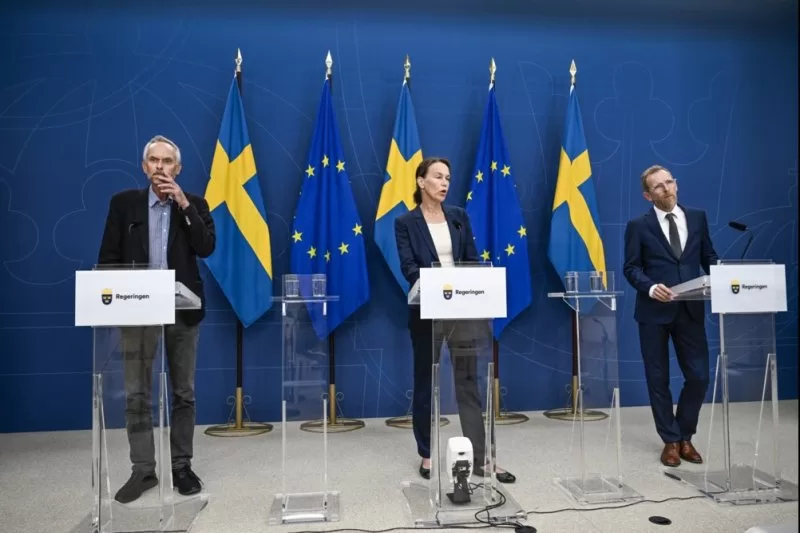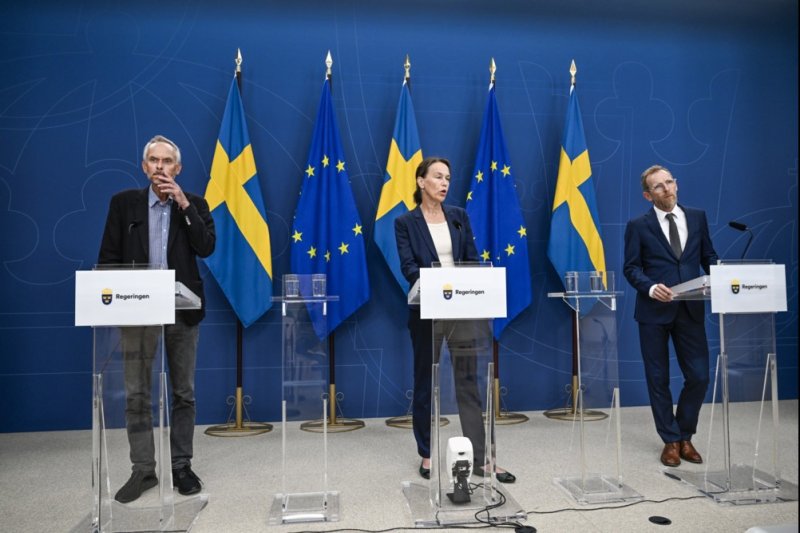The European Center for Disease Control and Prevention Friday released a risk assessment and guidance for mpox. It came one day after the first mpox Clade I infection was reported in Sweden. Swedish officials shown during Thursday press conference on mpox in Stockholm. Photo by Fredrik Sandberg/EPA-EFE
Aug. 16 (UPI) — The European Center for Disease Prevention and Control Friday released a risk assessment and updated guidance for mpox in Europe after one case of MPXV clade Ib was reported Thursday.
The ECDC said more cases are likely to occur in Europe but the likelihood of EU/EEA general population infection is very low.
EU/EEA is the European Union plus Iceland, Liechtenstein and Norway who are part of the EU market area.
“The likelihood of infection in the general population in the EU/EEA is assessed as very low, provided that imported cases are diagnosed promptly and control measures are implemented,” the ECDC said in a statement. “In the event of more sporadic importations of the MPXV clade I in the EU/EEA, the likelihood of infection for close contacts of possible or confirmed imported cases is assessed high.”
The ECDC said for Europeans traveling to or living in nations most affected by mpox in Africa, the chances of infection when in close contact with affected communities is high, but the risk is low when such contact is avoided.
The ECDC statement said the risk is high for “EU/EEA citizens traveling to the affected countries and having close contact (healthcare workers, household or other close contact and/or multiple sexual contacts) with affected communities or living in the affected countries.”
Guidance published by the ECDC Friday said working to detect cases and prevent secondary transmission is vital.
Recommendations to public health authorities included following ECDC guidelines for case detection and investigation; implementing effective surveillance; rapidly isolating any suspected cases until proven negative and, if positive, until symptom resolution; and doing contact tracing and testing of close contacts of confirmed cases following the ECDC testing protocols.
No special recommendations were made for the general public.
The first case of the newer and more dangerous mpox strain Clade I was detected in Sweden, the first time it’s been discovered outside of continental Africa.
The Swedish patient was infected by mpox Clade I during a stay in Africa. That strain is linked to a higher risk of more severe effects and higher mortality.
The World Health Organization Wednesday declared mpox a global public health emergency.
In a statement the WHO said, “WHO is committed in the days and weeks ahead to coordinate the global response, working closely with each of the affected countries, and leveraging our on-the-ground presence, to prevent transmission, treat those infected, and save lives.”

